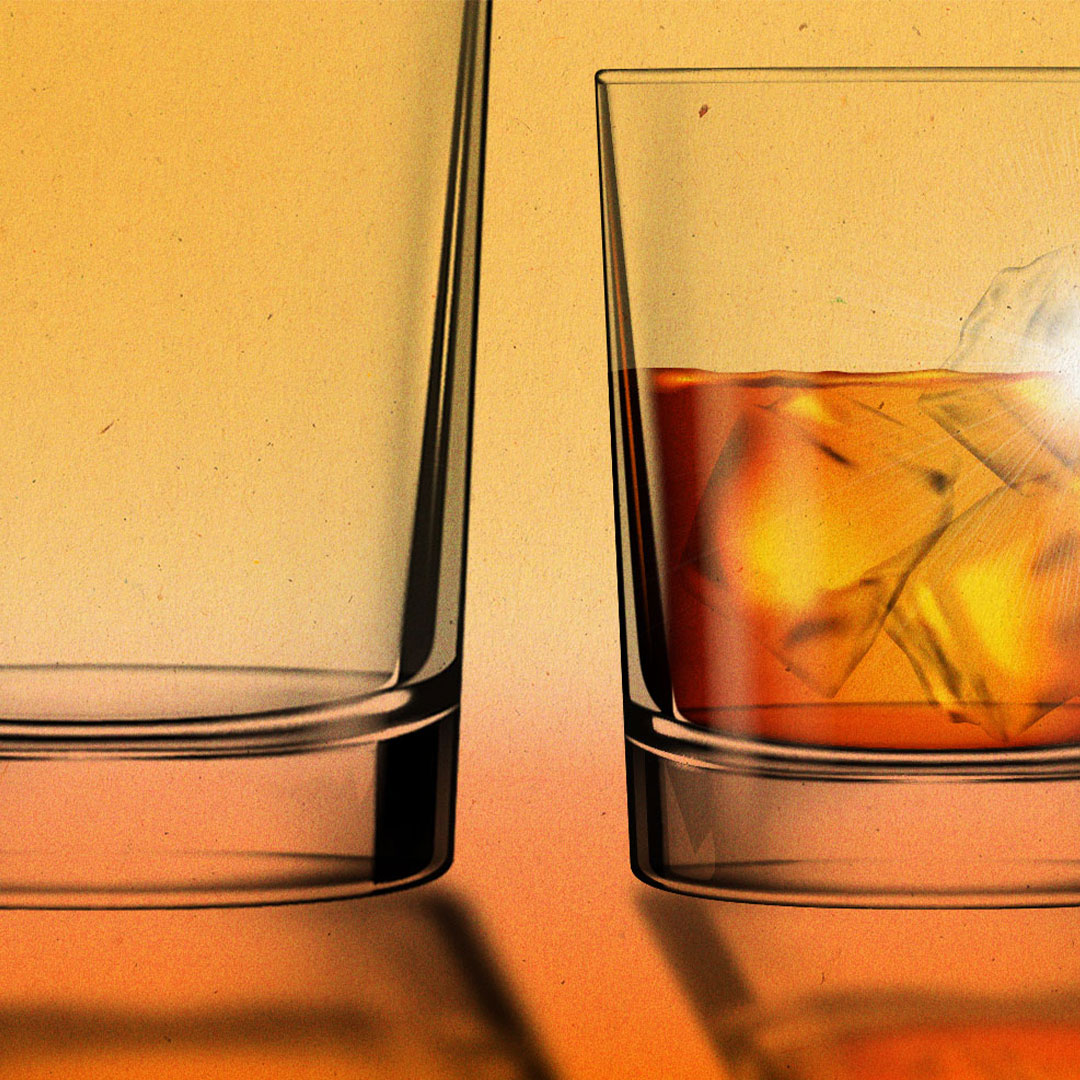Rocks glasses, a.k.a. Old Fashioned glasses, are among the most recognizable glassware in the drinks industry. These short, stout, wide-mouthed glasses are dubbed “rocks” glasses simply because of their ability to accommodate a large quantity of ice while still allowing for some wiggle room. Fill a Champagne flute or a Nick & Nora with ice and those “rocks” get stuck, melt together into a mini glacier, or leave almost no room for liquid. That’s why rocks glasses are great for cocktails and lone spirits served on the rocks.
When it comes to size, though, it’s worth noting that a double rocks glass isn’t literally double the capacity of a single rocks. The increments vary slightly by manufacturer, but singles tend to hover around eight ounces in volume and doubles can accommodate anywhere from 12 to 14. So when should a single, double, or even the rare triple rocks glass be used? To weigh in on the differences between these options, we hit up Deliah Miller, bartender at The York in NYC’s East Village.
Glassware choice mainly comes down to visual effect, but there are logistics to consider. “I mostly use single rocks for neat pours or spirits on the rocks, and for something like a Margarita, I’ll use a double rocks,” Miller says. “The only cocktail I use single rocks for is Old Fashioneds. It just looks better, in my opinion.” Most spirit-forward cocktails fit comfortably in a single rocks glass without looking like a rip-off.
Don’t Miss A Drop
Get the latest in beer, wine, and cocktail culture sent straight to your inbox.
If one opts for a double rocks glass for a spirit served over ice, though, the issue of over-dilution presents itself. “A lot of people are tempted to throw more ice in a double rocks just because it looks nice, but if you add too much ice it’ll dilute it, and that’s not necessarily something everyone wants,” Miller explains.
The lesser-known juggernaut in the rocks-glass family is the elusive triple rocks glass. It’s essentially a slightly shorter, wider Collins glass, and they exist solely for the purpose of hosting a large cast of ingredients and garnishes without them spilling over. Therefore, triple rocks glasses are almost always used for tiki drinks with 10-plus components.
When in doubt, it’s usually safe to opt for a double rocks glass. Odds are that the bartender might serve up a more generous pour, and you can always specify how much ice you want. But if you’re feeling classy and are itching to bust out your velvet smoking jacket, grab a single rocks glass, light up a stogie, and enjoy your sipping spirit of choice.


